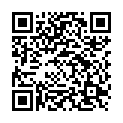|
|
|
| Module code: MAM_19_IP_3.10.PS3 |
|
|
5PA (5 hours per week) |
|
7 |
| Semester: 3 |
| Mandatory course: yes |
Language of instruction:
German |
Assessment:
Project work 100%
[updated 04.11.2020]
|
MAM_19_IP_3.10.PS3 (P241-0078) Engineering and Management, Master, ASPO 01.10.2019
, semester 3, mandatory course, Specialization Industrial Production
MAM_24_IP_3.10.PS3 Engineering and Management, Master, SO 01.10.2024
, semester 3, mandatory course, Specialization Industrial Production
|
75 class hours (= 56.25 clock hours) over a 15-week period.
The total student study time is 210 hours (equivalent to 7 ECTS credits).
There are therefore 153.75 hours available for class preparation and follow-up work and exam preparation.
|
Recommended prerequisites (modules):
MAM_19_IP_1.08.IP1 Industrial Manufacturing 1
MAM_19_IP_1.09.PS1 Production Systems 1
MAM_19_IP_2.10.IP2 Industrial Manufacturing 2
MAM_19_IP_2.11.PS2 Production Systems 2
[updated 10.07.2019]
|
Recommended as prerequisite for:
|
Module coordinator:
Prof. Dr. Jürgen Griebsch |
Lecturer:
Prof. Dr. Jürgen Griebsch
[updated 07.05.2019]
|
Learning outcomes:
After successfully completing this submodule, students will have learned to complete a complex, interdisciplinary project with requirement specifications, a time schedule and a fixed submission/completion date with regard to technical, economic and legal constraints.
Students will have learned to prioritize and make timely decisions with limited resources (personnel, machinery, finances).
They will be able to ensure the success of a project through internal and external communication.
Students will be able to orient themselves on the market, i.e. to assess the market potential and implement a suitable solution.
[updated 04.11.2020]
|
Module content:
SMART CUBES project; practical implementation of preliminary work and the completion of the project including functional tests and optimization measures.
In detail, the following tasks must be prepared and carried out:
- Structure/organization
- Interfaces
- Functional testing
- Test
- Documentation
- Marketing
[updated 04.11.2020]
|
Teaching methods/Media:
Seminaristic, interactive instruction.
The "Smart Cubes" project is based on a project handbook that is prepared at the beginning of the course and continuously subject to a target-performance comparison. This will take place in regular workshops with all students or group-specific.
The project will be carried out in teams in order to strengthen social skills, as well as methodological and personal competence.
[updated 04.11.2020]
|
Recommended or required reading:
Recommended or required reading:
Westkämper, Engelbert / Warnecke, Hans-Jürgen; "Einführung in die Fertigungstechnik"
Habenicht, Gerd; "Kleben - erfolgreich und fehlerfrei - Handwerk, Praktiker, Ausbildung, Industrie"
Ralf Berning; "Grundlagen der Produktion: Produktionsplanung und Beschaffungsmanagement (Taschenbuch)"
Pahl/Beitz: Engineering Design - A Systematic Approach. Springer-Verlag, London.
Ehrlenspiel, K.; Meerkamm, H.: Integrierte Produktentwicklung - Denkabläufe, Methodeneinsatz, Zusammenarbeit. Carl Hanser Verlag, München.
Scholz, U.; Pastoors, S.; Becker, J.; Daniela Hofmann, D.; Van Dun, R.: Praxishandbuch Nachhaltige Produktentwicklung. Spinger-Verlag.
Gevatter, Grünhaupt; Handbuch der Mess- und Automatisierungstechnik in der Produktion; Springer Verlag, 2006; ISBN: 978-3-540-21207-2
Overmeyer, L.; Steuerungstechnik _ Eine praxisnahe Einführung; Springer Verlag, 2020; ISBN 978-3-540-36043-8
Haun, M.; Handbuch Robotik _ Programmieren und Einsatz intelligenter Roboter, Springer Verlag 2013; ISBN 978-3-642-39858-2
Hesse, S., Malisa, V.; Taschenbusch Robotik _ Montage _ Handhabung; Hanser Verlag, 2016; ISBN: 978-3-446-44365-5
Erlach, K.; Wertstromdesign - Der Weg zur schlanken Fabrik; Springer Verlag, 2010; ISBN: 978-3-540-89866-5
Linß, G.; Qualitätsmanagement für Ingenieure; Hanser Verlag, 2018; ISBN: 978-3-446-44042-5
[updated 04.11.2020]
|


